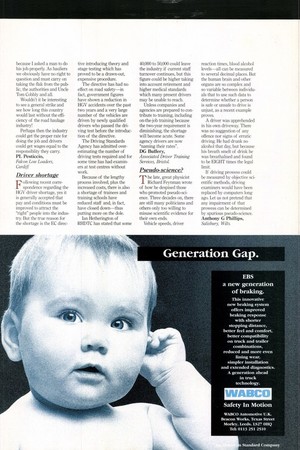Pseudo-science?
Page 35

If you've noticed an error in this article please click here to report it so we can fix it.
The late, great physicist Richard Feynman wrote of how he despised those who promoted pseudo-science. Three decades on, there are still many politicians and others only too willing to misuse scientific evidence for their own ends.
Vehicle speeds, driver reaction times, blood alcohol levels—all can be measured to several decimal places. But the human brain and other organs are so complex and so variable between individuals that to use such data to determine whether a person is safe or unsafe to drive is unjust, as a recent example proves.
A driver was apprehended in his own driveway. There was no suggestion of any offence nor signs of erratic driving. He had drunk no alcohol that day, but because his breath smelt of drink he was breathalised and found to be EIGHT times the legal limit.
If driving prowess could be measured by objective scientific methods, driving examiners would have been replaced by computers long ago. Let us not pretend that any impairment of that prowess can be determined by spurious pseudo-science. Anthony G Phillips, Salisbury, Wilts.
























































































































